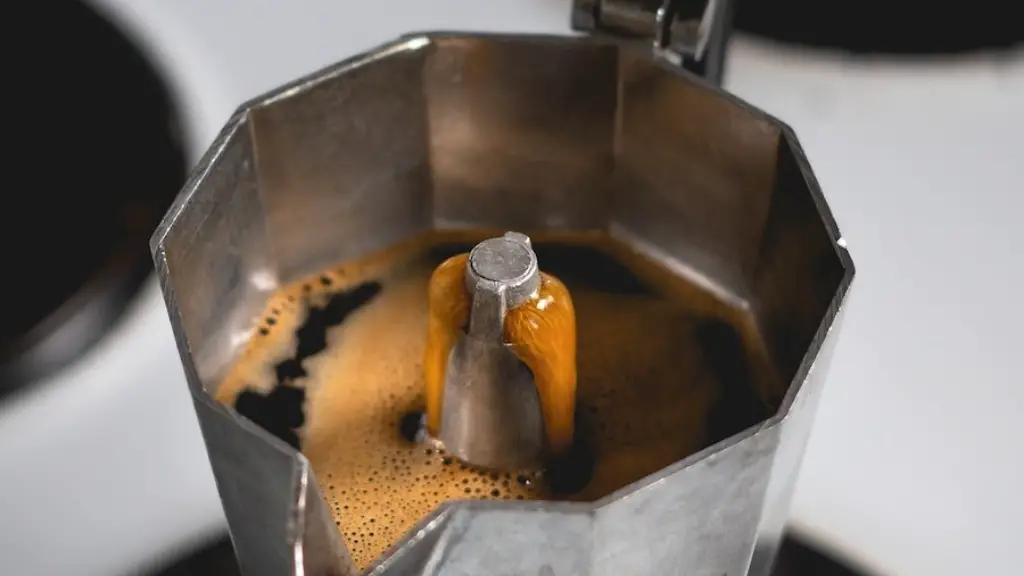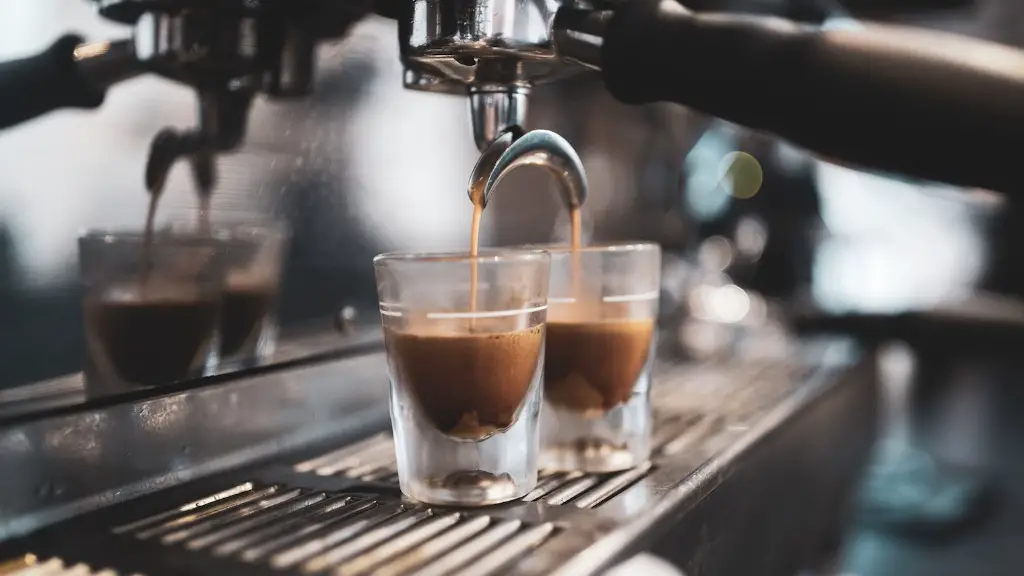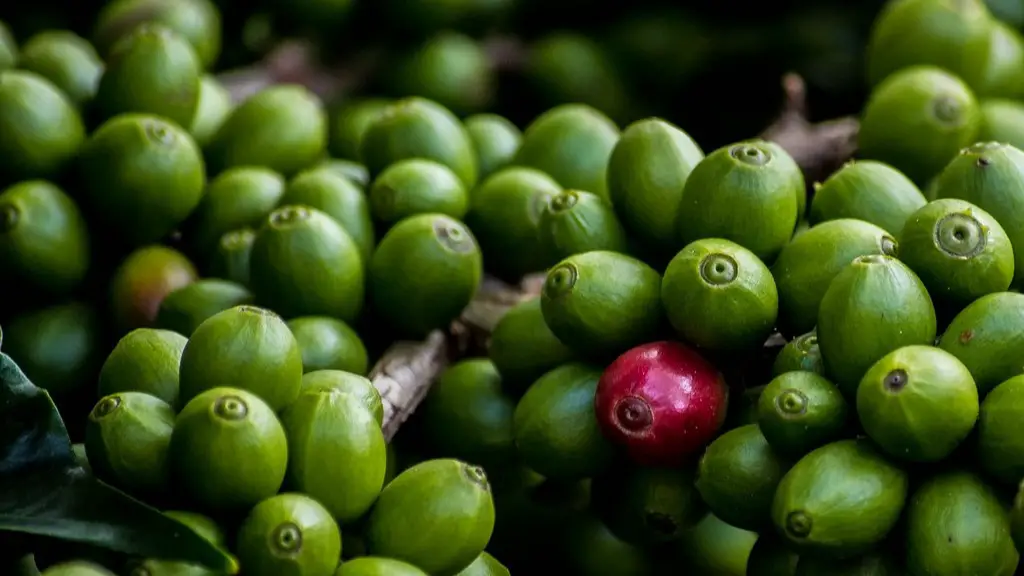Coffee has become an increasingly popular lifestyle drink for many people all over the world. And for most, it can be a great way to start their day. But for some, drinking coffee can lead to a bout of stomach aches. Despite the popularity of coffee, many are still uncertain why drinking coffee leads to stomach aches, even if they’re used to drinking one cup a day.
One of the main reasons why coffee can cause a stomach ache is due to its high levels of caffeine. Caffeine increases the amount of stomach acid, which can be a source of pain. In addition, the caffeine in coffee can cause constriction of the stomach, which can also lead to irritation and discomfort. This is why it’s important to be mindful of the amount of coffee you’re drinking in a day.
Furthermore, if the coffee has been sitting for a while, it can cause further irritation and stomach aches. This is because coffee beans produce some of their compounds as they age. Some compounds are more acidic, which can cause stomach discomfort. Therefore, it’s important to make sure you’re not drinking coffee that’s been sitting for too long.
Drinking coffee and have stomach ache can also be a sign that your body is not used to coffee. This is particularly the case if you’ve never had coffee before. Even those who have been drinking coffee for some time can develop a sensitivity to coffee, and may experience stomach ache after drinking a cup. This is why it’s important to start slow and work your way up.
Another reason why coffee may lead to a stomach ache is due to the brewing process. Some people like to drink strong, bitter coffee. This can lead to stomach irritation if consumed in large amounts. Plus, if you’re using a french press, the grounds may stay in the brew for longer, which can cause further irritation.
If you experience stomach ache after drinking coffee, then it’s best to reduce the amount you’re drinking and try to find a milder brew. Also, make sure to watch how quickly you consume the coffee, as caffeine can also lead to stomach ache. It’s important to take small sips, and make sure to drink plenty of water to stay hydrated.
Another way to reduce stomach aches after drinking coffee is to switch up your method of brewing. For instance, using filter paper can help filter out some of the compounds produced during the brewing process, reducing their strength. Additionally, cold brew is a great option, as it doesn’t require heating and may cause less irritation.
In conclusion, drinking coffee can lead to stomach ache for a few reasons. It’s important to be mindful of the amount of coffee you’re consuming throughout the day, and to make sure to drink plenty of water to stay hydrated. Switching up your method of brewing can also help reduce the amount of irritation. If reducing your coffee intake and method of brewing doesn’t help, it might be best to consult your doctor or healthcare provider.
Types of Coffee Brewing Methods
When it comes to making the perfect cup of coffee, there are many different brewing methods that can be used. From French press to filter paper, each method has its own unique advantages and disadvantages. Knowing the various types of brewing methods can help you find the right one to make the perfect cup of coffee.
The most common brewing method is filter paper, which is often used in automatic coffee machines. The paper is placed inside the machine, and water is poured through the grounds to extract the flavor of the coffee. This method is relatively simple and straightforward, producing a light and clean cup of coffee.
Another popular brewing method is the French press, which was first invented in the 1950s. This method requires a cylindrical container that is filled with ground coffee, and hot water is then poured over the top and allowed to steep for several minutes before being filtered out. This method is generally easier to clean, and produces a much stronger cup of coffee.
The Aeropress is a newer method of making coffee. It uses a plunger to press coffee grounds through a filter, and produces coffee that is smooth and flavorful. This method is also relatively simple and easy to use, and can be great for those who are on the go.
The last method is cold brew, which may be the simplest of them all. This method involves steeping coffee grounds in cold or room-temperature water for several hours, and produces a cup of coffee that is smooth and low in acidity. Cold brew is a great way to enjoy coffee without the stomach ache.
Benefits of Coffee
Aside from helping to start your day off on the right foot, coffee can also offer several other health benefits. Studies have shown that coffee can help reduce the risk of some chronic diseases, such as type 2 diabetes, heart disease, and stroke. Coffee may also help to lower the risk of certain types of cancer, such as liver and colorectal cancers.
Coffee has also been known to have a positive effect on mental health. Studies have shown that drinking coffee can help reduce the risk of depression, as well as improve alertness and focus. Coffee may also help to increase the metabolism, which makes it a great beverage for people trying to lose weight.
In addition to its health benefits, coffee can also provide an enjoyable experience. Enjoying a cup of coffee can be a great way to take a break and relax, and can be a perfect way to start off your day or to wind down after a long day. Coffee offers an enjoyable way to connect with friends and family, and can be a great way to start a conversation.
Finally, coffee can also be a great way to boost creativity. Studies have shown that coffee can enhance concentration, allowing for improved problem-solving ability, and can even help with creative thinking. So if you’re looking for a way to fuel your creativity, a cup of coffee can help.
Barista Etiquette
When ordering a cup of coffee from a barista, it’s important to remember that there are certain etiquette rules that should be followed. The first rule is to be polite and respectful to the barista. Make sure to greet them and ask them politely what they recommend. Also, it’s important to know what type of drink you want beforehand and make sure to speak clearly.
It’s also important to be patient when ordering coffee. A barista may be making a few drinks at once, so they may be busy and unable to answer your questions right away. Similarly, it’s important to be patient when waiting for your order, as there may be other customers in line. It’s important to be courteous to everyone in line.
If you’re ordering for a group, it’s important to decide on a plan before arriving at the cafe. It’s best to know what everyone wants so that you can order any extra drinks like pastries, an extra shot of espresso, or a soy milk substitute at once. This also helps to speed up the process and allows the barista to work faster.
In addition, it’s important to know your order before placing it. This can include the size of the cup and the type of milk you want. It’s also important to know how you take your coffee, as the barista may not know the default for the drink. Finally, it’s important to be generous with tips, as baristas work hard to make sure their customers enjoy their drinks.
Treating Coffee-Related Stomach Ache
If you’re experiencing stomach ache after drinking coffee, it’s important to take the necessary measures to alleviate the pain. It’s important to reduce the amount of coffee you’re drinking and to switch up your brewing method. Additionally, it’s a good idea to drink plenty of water to stay hydrated and to take small sips when consuming coffee.
If reducing your coffee intake and changing your brewing method doesn’t help to alleviate the pain, then it’s best to consult your doctor or healthcare provider. Your doctor may be able to recommend some medications or lifestyle changes to help with the pain. It’s important to seek professional help if you’ve tried reducing your coffee intake and experiencing pain.
In some cases, all you may need is to give your body a break from coffee. Coffee can be quite stimulating, and your body may need some rest from its effects. Taking a break from drinking coffee for a few days can help to alleviate any stomach pain, and can even help to reset the caffeine tolerance level in your body.
Finally, it’s important to pay attention to other lifestyle habits that may be causing the pain. For instance, eating too quickly or eating certain types of food can cause stomach ache after drinking coffee. Similarly, not getting enough sleep or stress can also lead to stomach ache. Therefore, it’s important to address lifestyle factors as well as coffee consumption when treating stomach ache.





